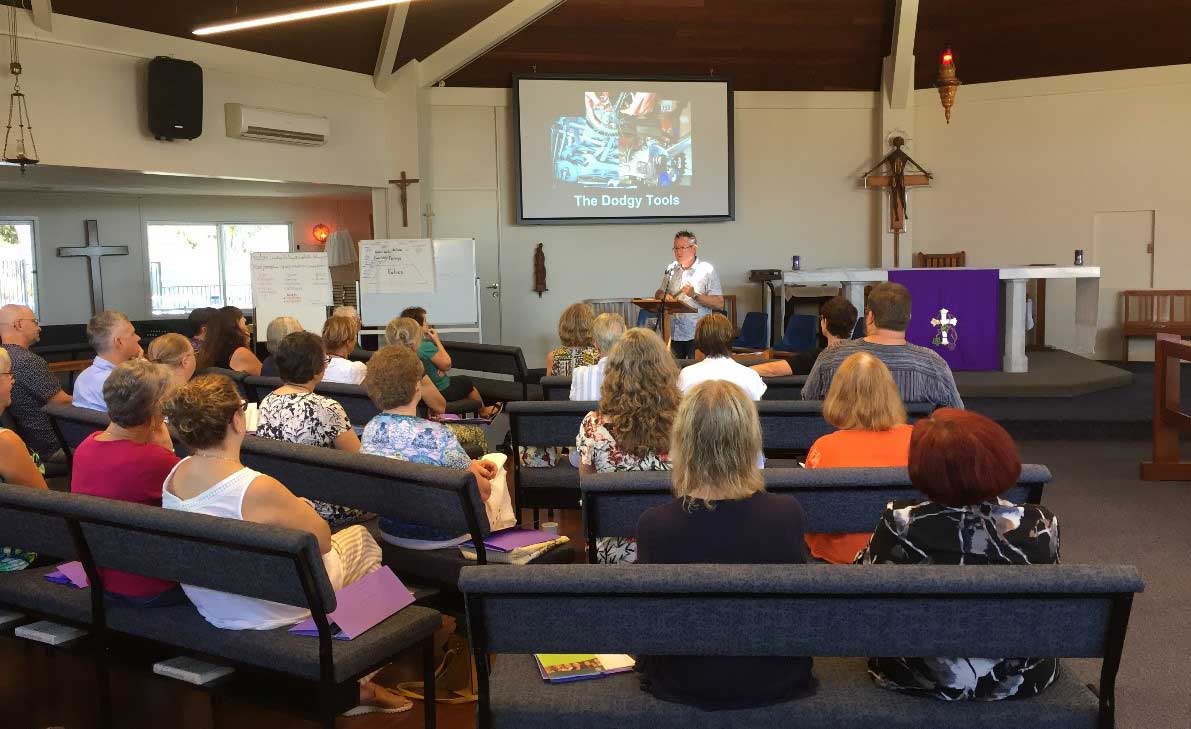Living Church in Rural Queensland
Recently Archbishop Desmond Tutu praised the work of Nelson Mandela:
"He made us believe that all, each one of us, is made of goodness. We are made for caring, we are made for loving, we are made for compassion, we are made for laughter, we are made for peace.”
It is worth noting that the documents from the Second Vatican Council dealing with Ecumenism and Interfaith dialogue also make significant use of the word Peace.
Medieval sources say that Peace can refer to, reconciliation, tranquility, covenant or agreement and the absence of hostility. At its best “Living Church in Rural Queensland” can encompass all those attributes.
In our area, in 1996, such commitment to Church Unity gathered Anglicans, Catholics, Lutherans and Uniting Church members together for a Conference “Being Church in Rural Queensland” [BCIRQ].
Since then there has been a variety of such agreements including the Western Region Anglican-Catholic agreement of 15th June 2001, the Injune Covenant of November 2008, the Brisbane Covenant of 29th May 2009.
In our area alone there has been good number of expressions of ecumenical resolve in covenants and agreements; but noticeably the word “peace” was hardly mentioned.
More recently at our James Byrne Centre, in 2009, BCIRQ led to the production of “Living Church in Rural Queensland.” It is the only recent document to mention “Peace.” The participants chose as a theme expressing their resolve, the words of St Paul to his friends in Ephesus: “Now in Christ Jesus you who were far off have been brought near by the blood of Christ. For he is our peace, in his flesh he has made both groups into one and has broken down the dividing wall, that is, the hostility between us.”
This document has led further to the establishment on 18 October 2013 of a Queensland Churches Together Commission called “Living Church in Rural Queensland”. A meeting is scheduled for March 28th at James Byrne Centre with some of the participants in the 2009 gathering to symbolically hand over the document to QCT and to discuss (a) suggestions for personnel for the LCIRQ Commission and (b) ways of reporting the work of that commission back to the diocese/areas involved.
It seems that internationally we now have a new document: “Conflict to Communion” which is very interesting and perhaps challenging to all. Lutherans and Catholics have been on their ecumenical journey for the past 50 years. They already produced the joint Statement on Justification by Faith in 1999. NOW in this recent document, since promoted by Pope Frances, the Lutheran-Catholic dialogue remarkably looks ahead to celebrating the 500th anniversary of the Reformation in 2017 together! The lengthy text looks at the joint responsibility for the division of the Western Church in the 16th century, addressing the challenges of healing those memories and working together for reconciliation and common witness to the world.
Martin Junge, General Secretary of the World Lutheran Federation says this event should call us to common witness.
The Catholic representatives responded that the life of the Church needs to be undergoing reform in every age. The mere existence of the document is truly a signal of peace. May we all do our best to bring that peace into existence. Rev Dr Brian Sparksman
May we all do our best to bring that peace into existence.
Rev Dr Brian Sparksman

Subscribe to our newsletter
Sign up to receive updates from Queensland Churches Together.
GENERAL ENQUIRIES
PO Box 2096 Toowong Qld 4066
Dr Kate Power, General Secretary
Phone: (07) 3369 6792
Email: gensec@qct.org.au
Jackie Fewtrell, Administration Officer
Phone: (07) 3369 6792
Email: admin@qct.org.au
